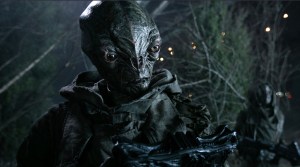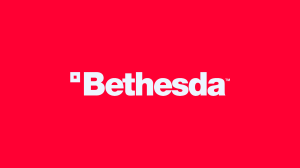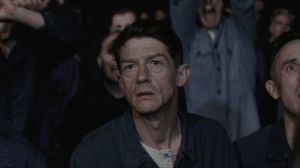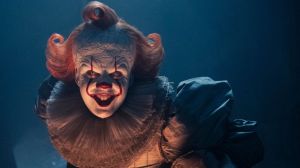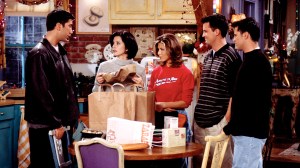Dune Prophecy is made up largely of new material, but there’s nothing more surprising or mysterious in the pilot episode than Desmond Hart. This brand new character – played by Travis Fimmel – does not appear in any Dune novels, and he demonstrates abilities that no one else in the franchise has, either. Naturally, fans got right to work theorizing about this newcomer, but the exciting thing is that just about any idea could be the right one at this point.
Videos by ComicBook.com
Fair warning: there are spoilers ahead! Prophecy draws primarily from material in the trilogy Great Schools of Dune by Brian Herbert and Kevin J. Anderson, but the show has already changed some key details and made it clear that this is not a straightforward adaptation. Adding in a brand new character is one thing, but giving that character pyrokinesis is another story.
Here’s what we know: Desmond is a warrior from House Corrino dispatched to Arrakis to defend spice harvesting operations. His regiment was attacked and he was presumed dead until he arrived back at the palace on Salusa Secundus, where he told Emperor Javicco (Mark Strong) that he was attacked by other people from the Imperium, not the Fremen. The Emperor’s truthsayer, Sister Kasha, says that Desmond is telling the truth, “or at least he believes it to be.” However, the emperor later reviews footage of the incident and sees Desmond kneeling in the sand with open arms as a sandworm charges towards him. He disappears in the dust, apparently swallowed by the creature. Desmond tells the emperor that he prayed for “the strength to feel nothing,” and the next thing he knew, he was digging his way out from the sand.
Meanwhile, Desmond has a conversation with young Pruwett Richese (Charlie Hodson-Prior), warning him that humanity is at risk of being “controlled again,” like they were before the “machine wars.” He says that Pruwett’s “sacrifice will save millions,” and just then Pruwett begins to burn to death inexplicably, with no flames. Apparently simultaneously, Sister Kasha begins to burn in the same way back on the Sisterhood home world, Wallach IX.
There are too many questions to tally here – it’s easier to take a look at some of the proposed answers. Whether you’ve read the books or not, it’s hard to predict where this is going without a fair bit of speculation. Here’s a look at the top theories about Desmond Hart after Episode 1.
Poison
First off, every theory gets a bit easier to rationalize if we assume that Desmond killed Pruwet and Kasha with some kind of poison. There is no pyrokinesis in the Dune franchise – or anything similar – and even if there were, casting flames across the galaxy to a different planet would be equally confusing. Therefore, we should consider the possibility that he somehow infected his two victims with some kind of poison, parasite or bomb ahead of time. He may have triggered or detonated the devices himself, or he may have simply had impeccable timing when talking to Pruwet.
Even assuming there’s some technological explanation for the murders, Desmond leaves a lot of questions to be answered. Many of the theories below try to deduce his identity, with plausible explanations for the immolations built in. The show may narrow the scope this week, so the theories will never be as broad as they are now.
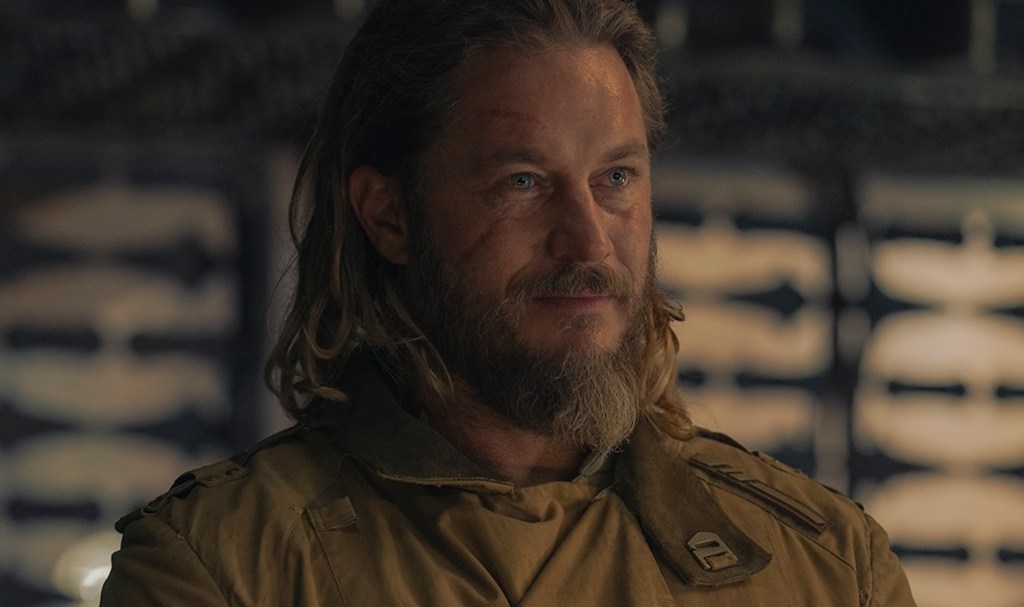
Tleilaxu Ghola
A popular guess on fan forums is that Desmond is a ghola – a genetically-engineered clone created by the Tleilaxu people on the planet Tleilax. The Tleilaxu play a major role in the books, but they’ve never been explained in any screen adaptations so far. However, director Denis Villeneuve has signed on to adapt Frank Herbert’s novel Dune Messiah into Dune Part Three, and that story features a Tleilaxu character central to the plot. For that reason alone, Prophecy may be trying to introduce the concept the the audience ahead of time.
Advanced technology is generally shunned in the Dune universe, but the Tleilaxu are one of the big exceptions. Their world pioneered genetic engineering and organic augmentation, and their biggest contribution to the story comes in the form of gholas. These clones can be designed to look like a fallen friend while remaining subconsciously loyal to the Tleilaxu, or to other groups who hired them. However, the gholas are sometimes able to overcome their conditioning or unlock memories stored in their DNA, especially under the influence of spice. Desmond himself might not even know he’s a ghola at this point, with his memory of “clawing my way out of the sand” obscuring the time he spent dead.
The ghola explanation makes sense of Desmond’s apparent death. If the Tleilaxu recovered his DNA – or already had it for some reason – they could have created a ghola and sent it to the emperor to manipulate him. Sadly, this idea doesn’t come with an easy explanation for the burning, but some sort of poison still works.
Ixian Spy
The other civilization that tests the boundary of the technology taboo in this franchise is Ix – a planet that still dabbles in advanced mechanisms while steering clear of anything that might be called sentient – or even robotic. Some commenters online have theorized that Desmond is a cyborg or android of some kind created by the Ixians. This theory is pretty similar to the ghola theory above, but with less precedent in the books. Even if Prophecy is taking the technological angle, I think some of the theories below work better.
Accomplice(s)
While some fans are focusing on who Desmond is and how he carried out this attack, others are more focused on who he might be working with and what he really wants. This is hard to pin down so far. He warned that the attack on his regiment was carried out by “insurgents” from other “allied worlds,” which could be a way of casting suspicion on other Great Houses and wealthy nobles. However, during a private meeting with the emperor later on, he references unhappiness from the underclass, who wonder if their lives were better under machine rulers and “why only the Great Houses profit from spice.”
He also told the emperor: “I’m the only one that can tell you the truth,” right in front of the official truthsayer. That could indicate a dislike for the Sisterhood. During the private meeting, he adds: “I thought the witches knew everything that went on,” insinuating that Kasha is not sharing everything with the emperor. At the same time, some fans are theorizing that Desmond has an accomplice among the Sisterhood who triggered Kasha’s death.
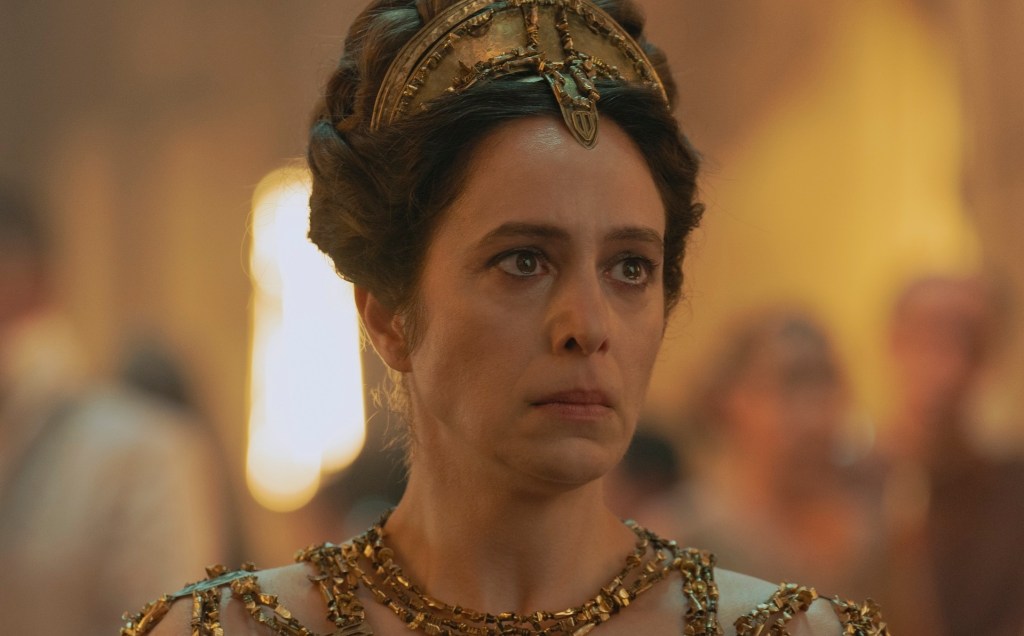
Butlerian
Desmond may represent a movement of anti-technology zealots present in the Great Schools of Dune books known as the Butlerians. These are the fanatics hellbent on destroying all advanced technology to prevent artificial intelligence from rising up again, often going so far as to reject things like medicine, prosthetics and even wheelchairs. They are a major presence in the books, but none of the key Butlerian characters appear to be in this show.
Desmond may be a stand-in for them, perhaps combining the traits of their charismatic leader Manford Torondo and the fierce fighting ability of Swordmaster Anari Idaho. The Butlerians are characterized by religious zealotry in the books, and Desmond is the only character to talk about prayers and gods in this show so far. The emperor remarks: “Religion is my wife’s refuge,” and a few scenes later Empress Natalya (Jodhi May) gives an impassioned speech about anti-technology laws at her daughter’s wedding. However, if this is the role Desmond is meant to play, he’ll need some way to rationalize his convoluted method of murdering Pruwet and Kasha.
Ptolemy
On the other end of the spectrum, Desmond could represent the technology apologists in the Imperium after the machine wars. If so, the closest analogy is probably the scientist Ptolemy, who starts out as a bright-eyed optimist offering to help the Butlerians with his new human-made advancements. He is scorned and nearly killed by them, driving him down a dark path for revenge that involves reviving some of the most violent technology of the era.
This wouldn’t be the best one-to-one fit for Desmond, but it could give us an idea of who he is and what drives him. So far, Desmond has been the one to point out the different views on technology throughout the Imperium, but he hasn’t said exactly where he stands. He told the emperor that some people believe they threw out all the machines too hastily, and he told Pruwet that someone or something was trying to control humanity again. These cryptic statements could mask an agenda to reclaim advanced technology, or even revive “thinking machines.”
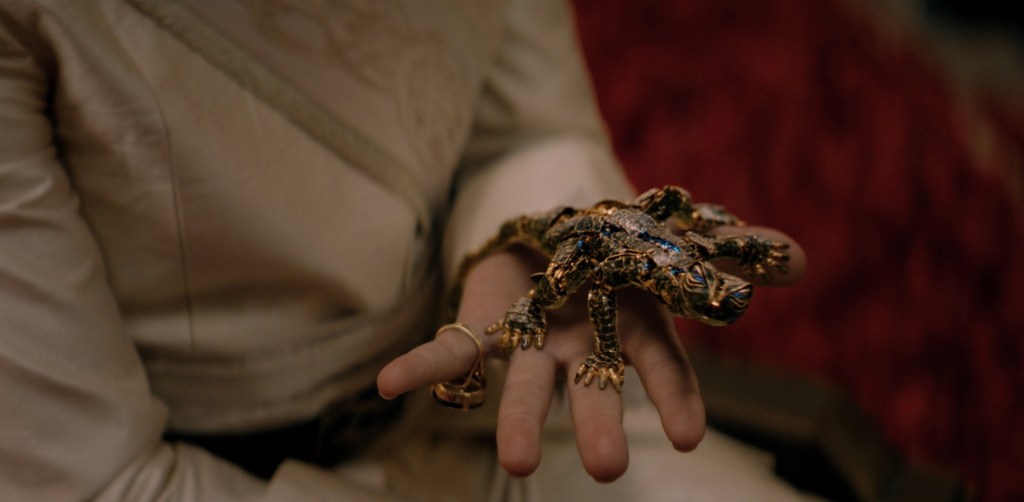
Andros
Finally, an extension of that theory is that Andros himself is a cyborg or android left over from before the war. This actually has a few precedents in the book, and the strongest one seems to be the twins Andros and Hyla. These are humans with major technological augmentations given to them by their father, Agamemnon, the progenitor of House Atreides. In the book, Andros and Hyla are trapped in a cryogenic chamber and are accidentally awakened by Butlerians, then immediately set out to restore AI dominance.
One reason this idea works is the way Andros and Hyla died. During a fight on Arrakis, the two are eaten by a sandworm and never seen again. If Desmond is meant to be analogous to these characters, his dramatic encounter with a sandworm could be a clue. Fans also seem to like this as an explanation for his apparent control of fire. While nothing in established Dune lore explains the spontaneous combustions, the technology from the age of thinking machines is open-ended enough that it could fit – at least for some fans.
Dune Prophecy will undoubtedly explain Desmond and his abilities soon enough, but that’s all the more reason to enjoy the fan theories and speculation while we can. The show airs on Sundays at 9 p.m. ET on HBO and Max. The novels are available now in print, digital and audiobook formats.


